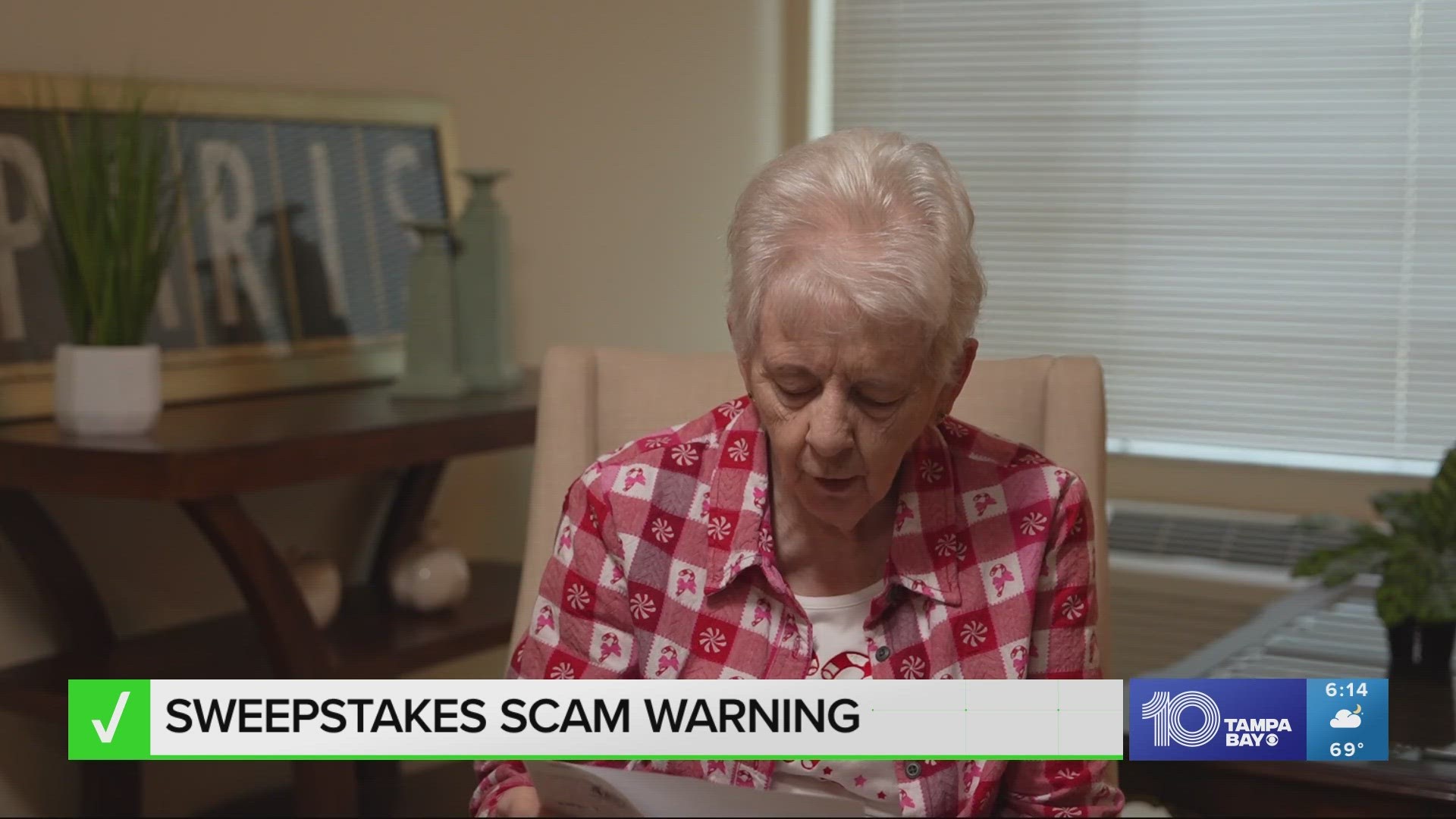BRANDON, Fla. — Evelyn Casey thought she’d hit the jackpot, but then she kept reading.
Casey provided VERIFY with a letter she received purporting to be from Publishers Clearing House. The letter, with a big check attached, promised an even bigger prize payout.
The letter said the $9,450 check was to “assist” with “taxes and processing fees” and was to be deposited only after calling a number provided to verify her bank information. Then she’d get the rest of her $800,000 prize.
Casey reached out to VERIFY skeptical of the letter’s legitimacy, especially given the attached check.
THE QUESTION
Will Publishers Clearing House ever make you pay to get your prize money?
THE SOURCES
THE ANSWER
No, Publishers Clearing House – or any other legitimate lottery or sweepstakes – will never require payment to claim a prize.
WHAT WE FOUND
Both the Better Business Bureau and the United States Postal Inspection Service warn you should never have to pay money to get prize money if you’ve won a legitimate sweepstakes or lottery.
Scams impersonating Publishers Clearing House are so prevalent the company has an entire section of its website dedicated to warning about the most common tactics used.
- Fake checks with bogus offers
- Fraudulent emails
- Scam calls
PCH says it will never contact someone ahead of time to tell them they’ve won or request personal banking or financial information. The company says it’s actively working with the Federal Trade Commission, U.S. Postal Service, police and law enforcement officials nationwide to crack down on scam impersonators.
But here’s where things could get tricky if you’re not careful.
Publishers Clearing House recently agreed to a settlement with the FTC with a promise to refund eligible customers up to $18.5 million to be distributed from a trust. The bogus check Casey received appears to be written from a trust account.
Had Casey searched "PCH CHECK" online after receiving hers, the FTC advisory about the settlement would have been one of the first search results to appear. But they are in no way related.
The AARP warns payouts in class action lawsuits are typically small because they involve many people, so an unusually large payout – like the $9,000 check Casey received – is a red flag it’s a scam.
“I didn’t want anyone else to get caught up in this scam,” she said.
Casey spotted the warning signs before scammers could take advantage, but she worries others could be duped, which is why she says she contacted VERIFY.
You can email your questions to verify@10tampabay.com or text your questions to 727-577-8522.

